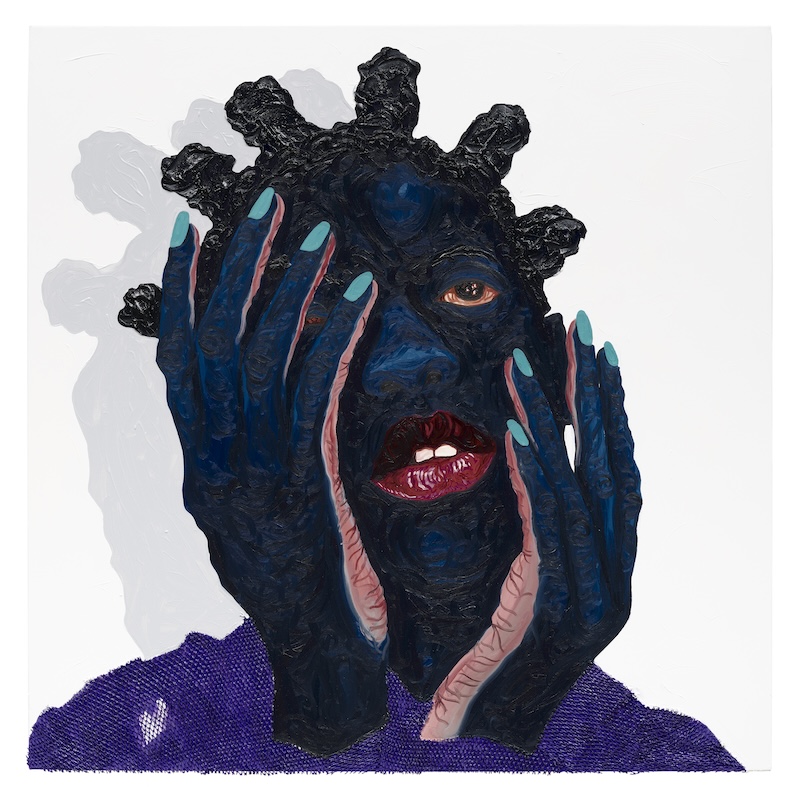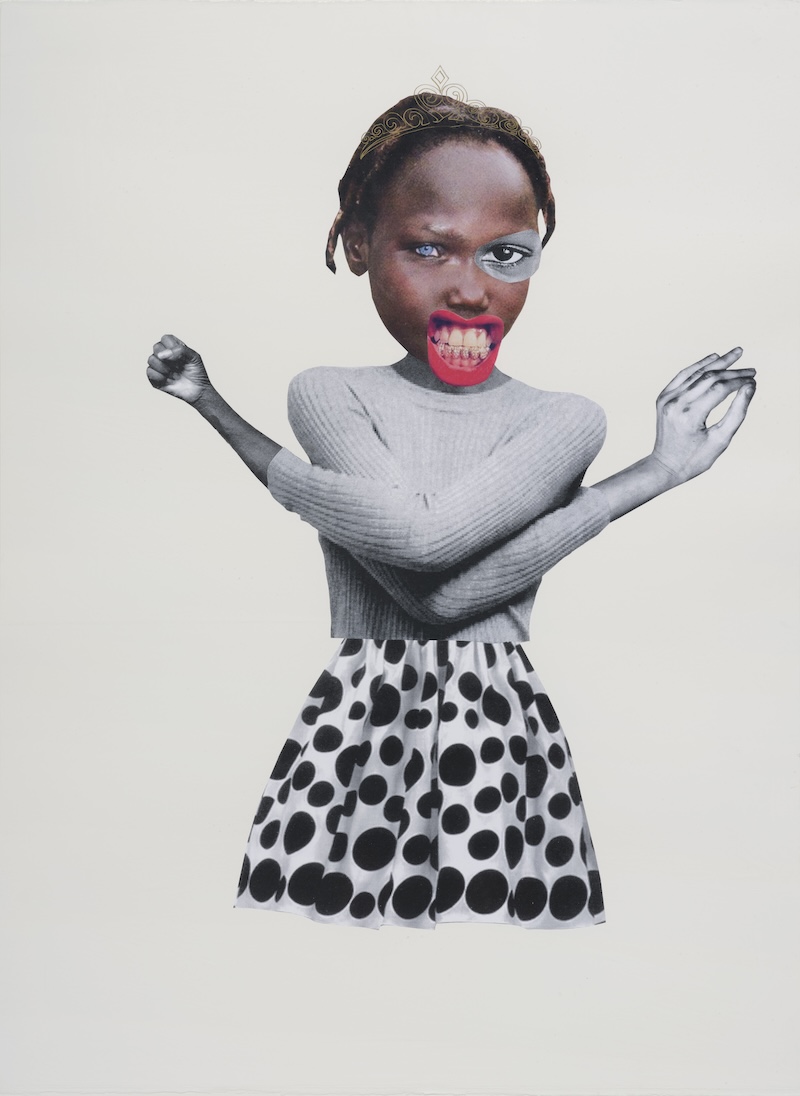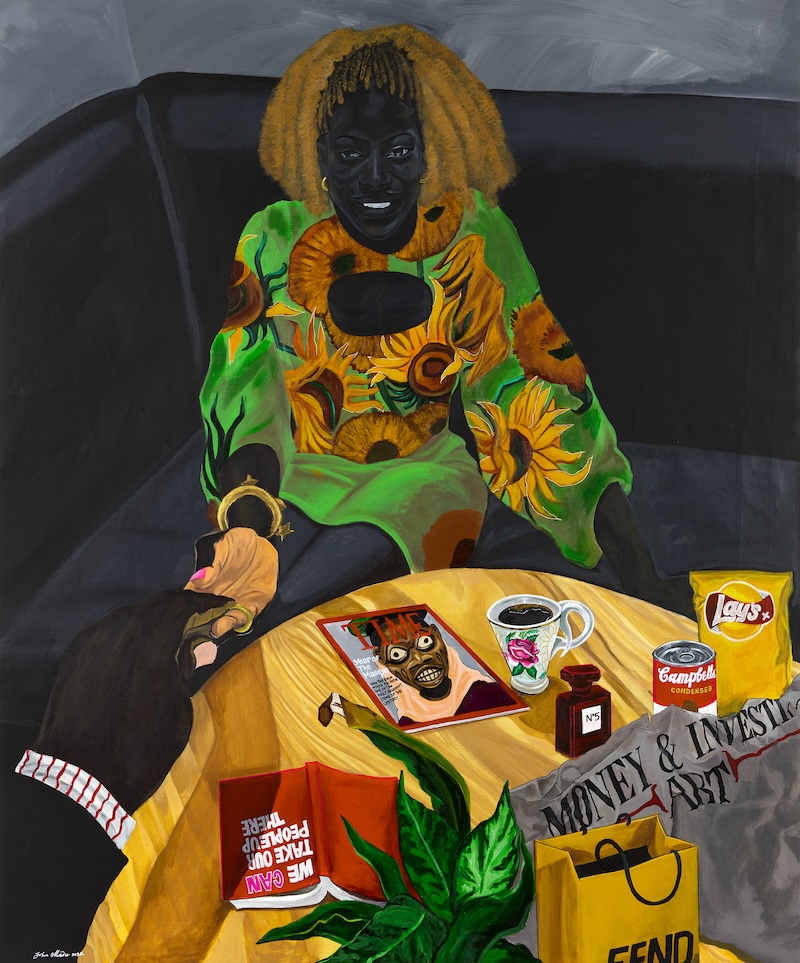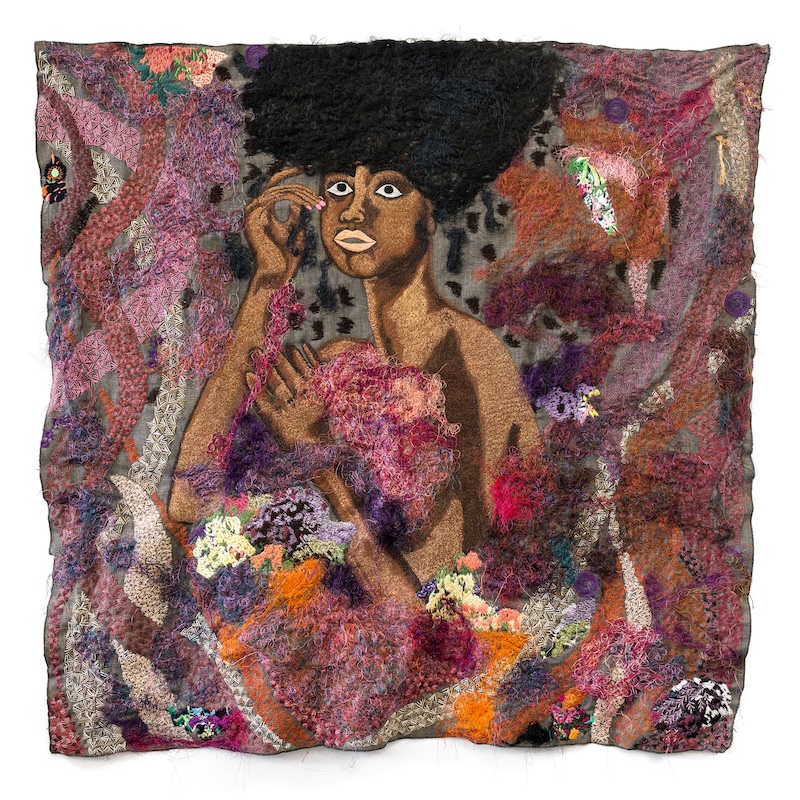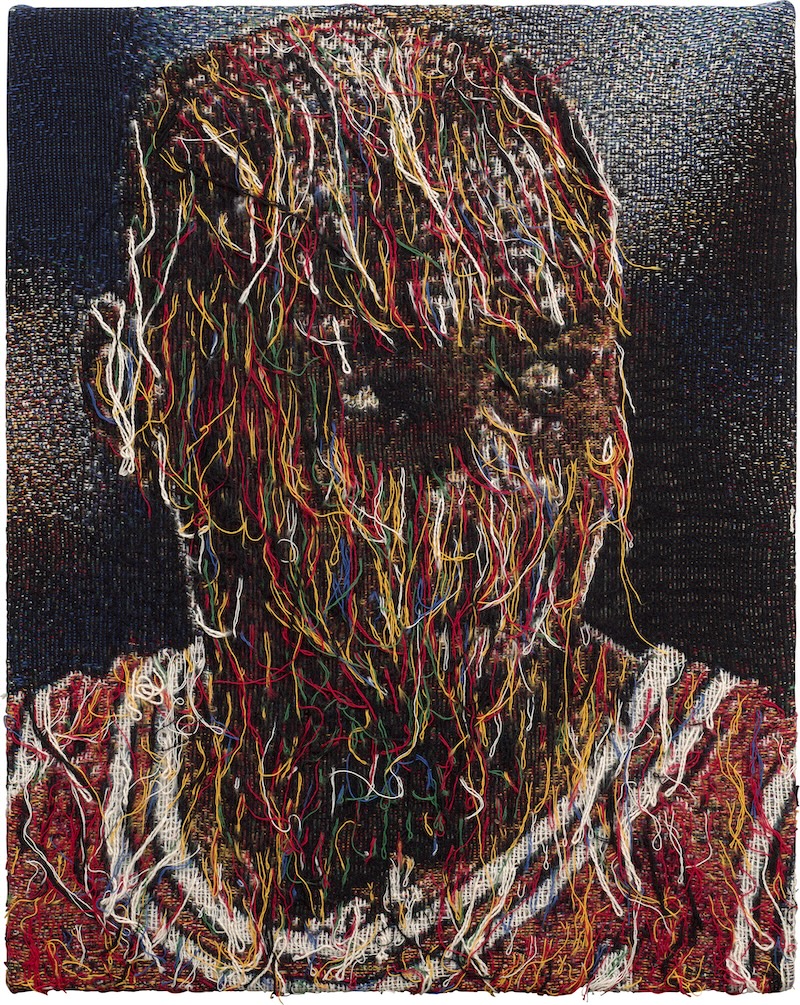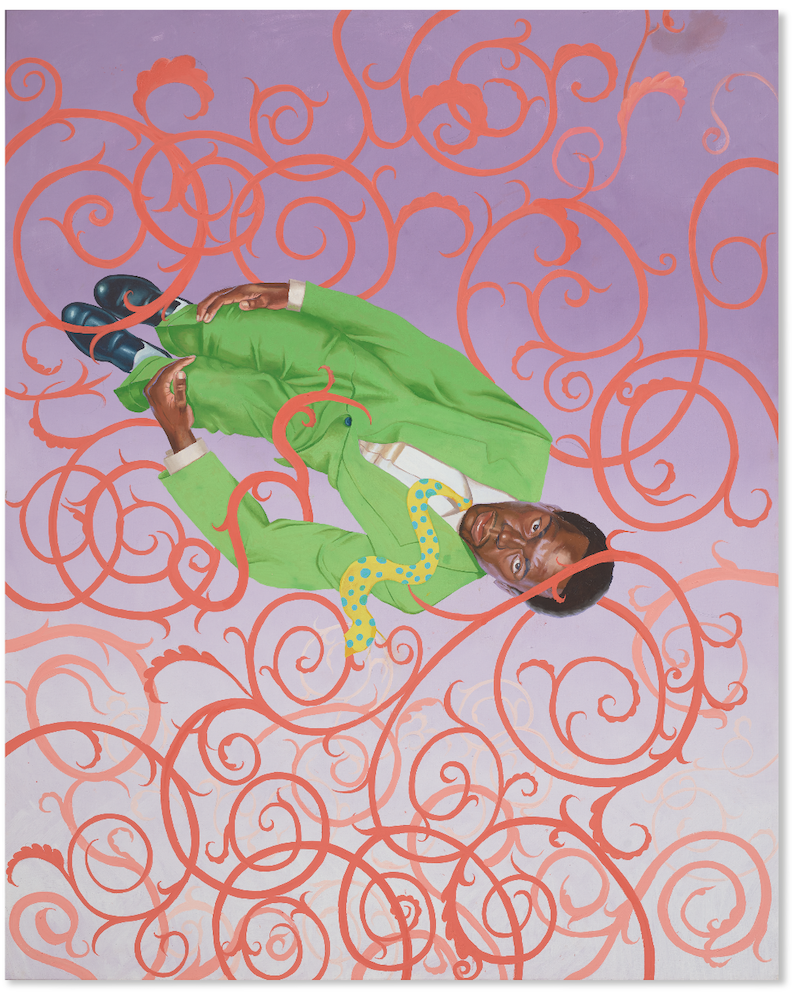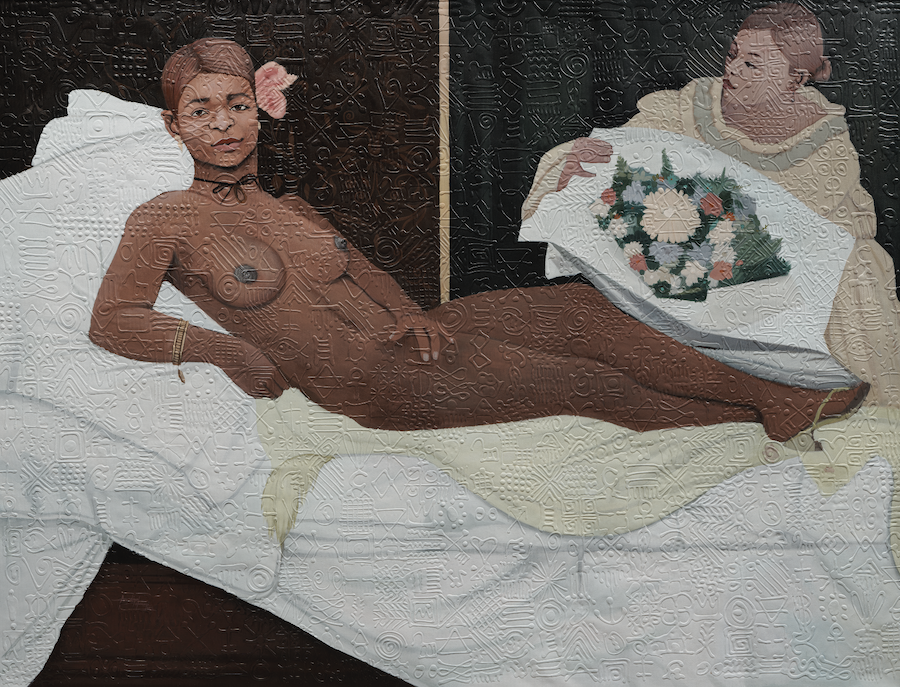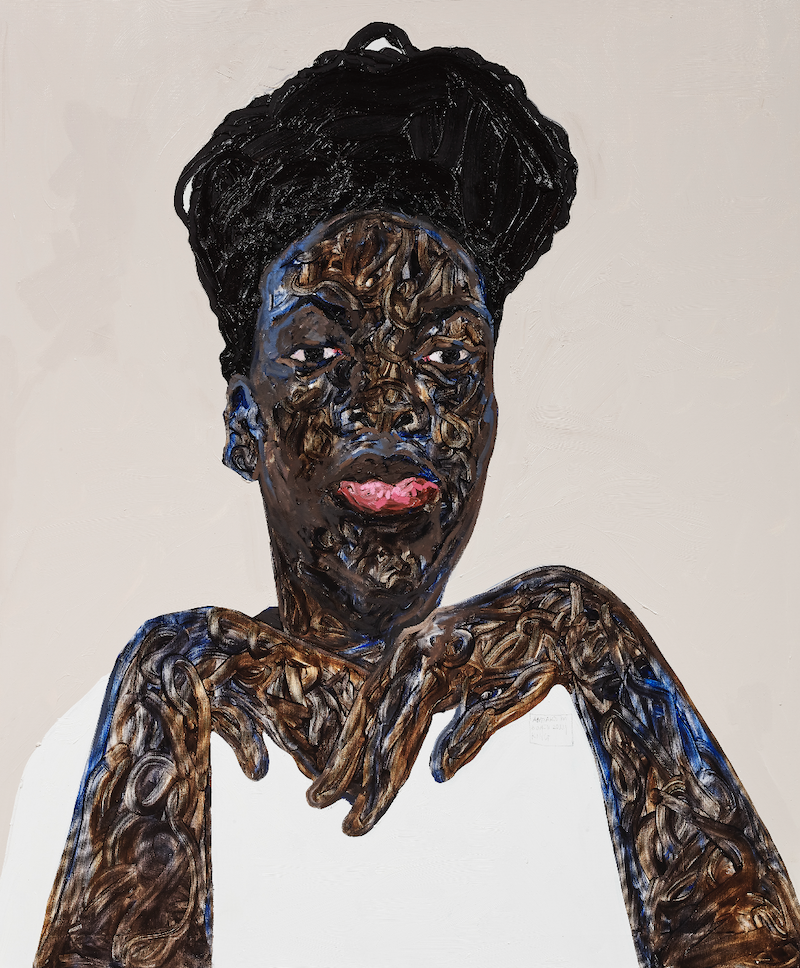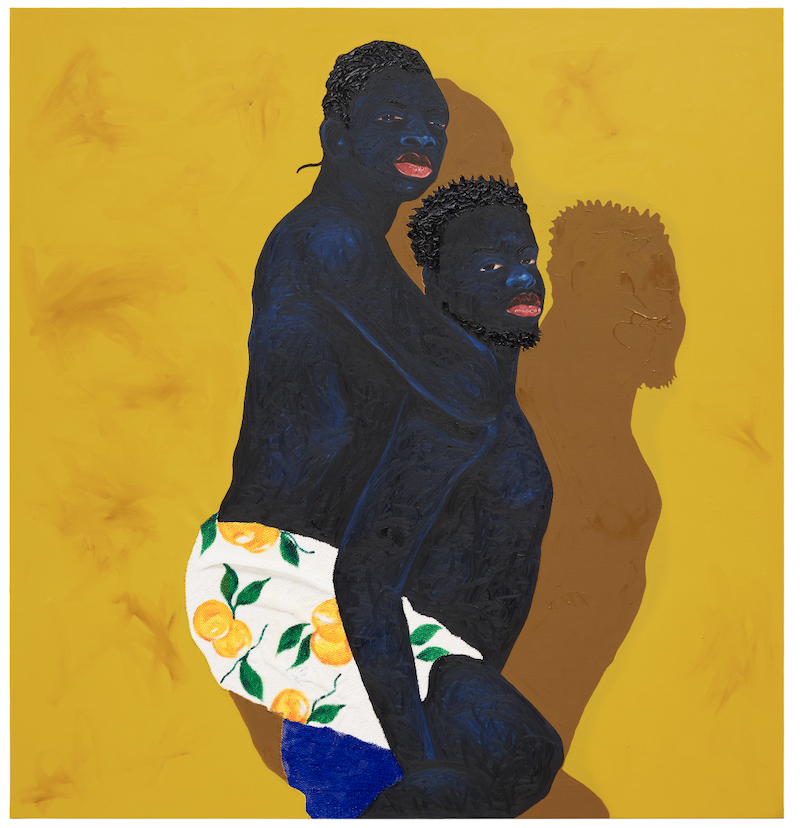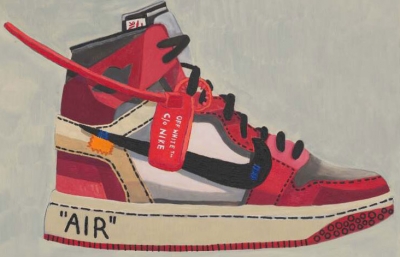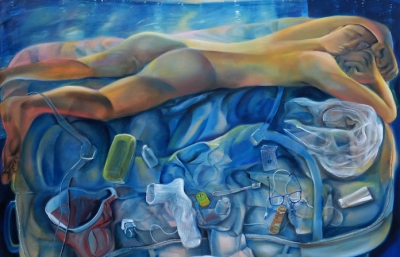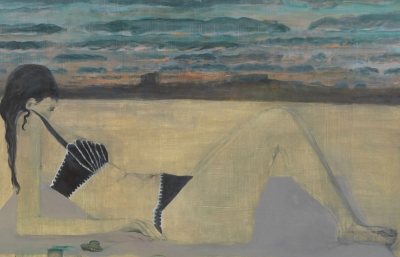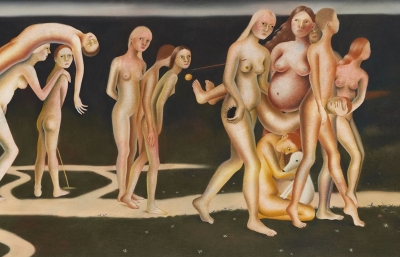Opera Gallery London is pleased to present The Whole World Smiles with You, a group exhibition opening on 29 May 2024. Curated by Alayo Akinkugbe, the exhibition features work by Aboudia, Derrick Adams, Noel Anderson, Amoako Boafo, Gerald Chukwuma, Bouvy Enkobo, Jazz Grant, John Madu, Kimathi Mafafo, Simphiwe Ndzube, Chris Ofili, Anya Paintsil, Deborah Roberts, Collin Sekajugo, Thelonious Stokes, Adjei Tawiah, Awodiya Toluwani and Kehinde Wiley.
Titled after the 1929 Louis Armstrong song “When You’re Smiling (The Whole World Smiles With You),” this exhibition interrogates various modes of figuration by contemporary Black artists. This exhibition includes works by artists who challenge the Western canon by overtly reconfiguring renowned paintings to include Black protagonists or, more covertly, portraying figures in poses reminiscent of pre-twentieth-century European portraiture. Other works in the exhibition demonstrate a tendency among Black artists to distort, simplify, or caricature the image of a Black person – either to draw attention to negative stereotypes or to imagine Black bodies extending beyond imposed limitations. This exhibition also features a distinct group of artists representing a recent movement, particularly among West African artists, towards portraying Black people at leisure in bright, vivid scenes from everyday life.
The resurgence of the Black Lives Matter movement in 2020 led to a proliferation of Black cultural production in Western institutions, museums, and galleries. Figurative work by Black artists, portraying Black people as perceived by Black artists, has been extremely popular, with many describing it as a “trend”. Figuration, however, is a constant throughout art history, regardless of shifts in popular taste towards and away from it. Such work remains relevant in its contribution to the understanding of racialised experiences and the diverse self-perceptions of Black people.
In one sense, the sudden popularity of art which demonstrated positive representations of Black figures, was a direct counter to the gut-wrenching imagery of Black people suffering – particularly at the hands of the police – which were circulating on social media and in the press. They provided a visual respite: images of Black people at ease, in everyday domestic and public settings and smiling countered the overwhelming increase of negative images at that time. ‘When you’re smiling, the whole world smiles with you’, a phrase from the Louis Armstrong song speaks to this phenomenon.



